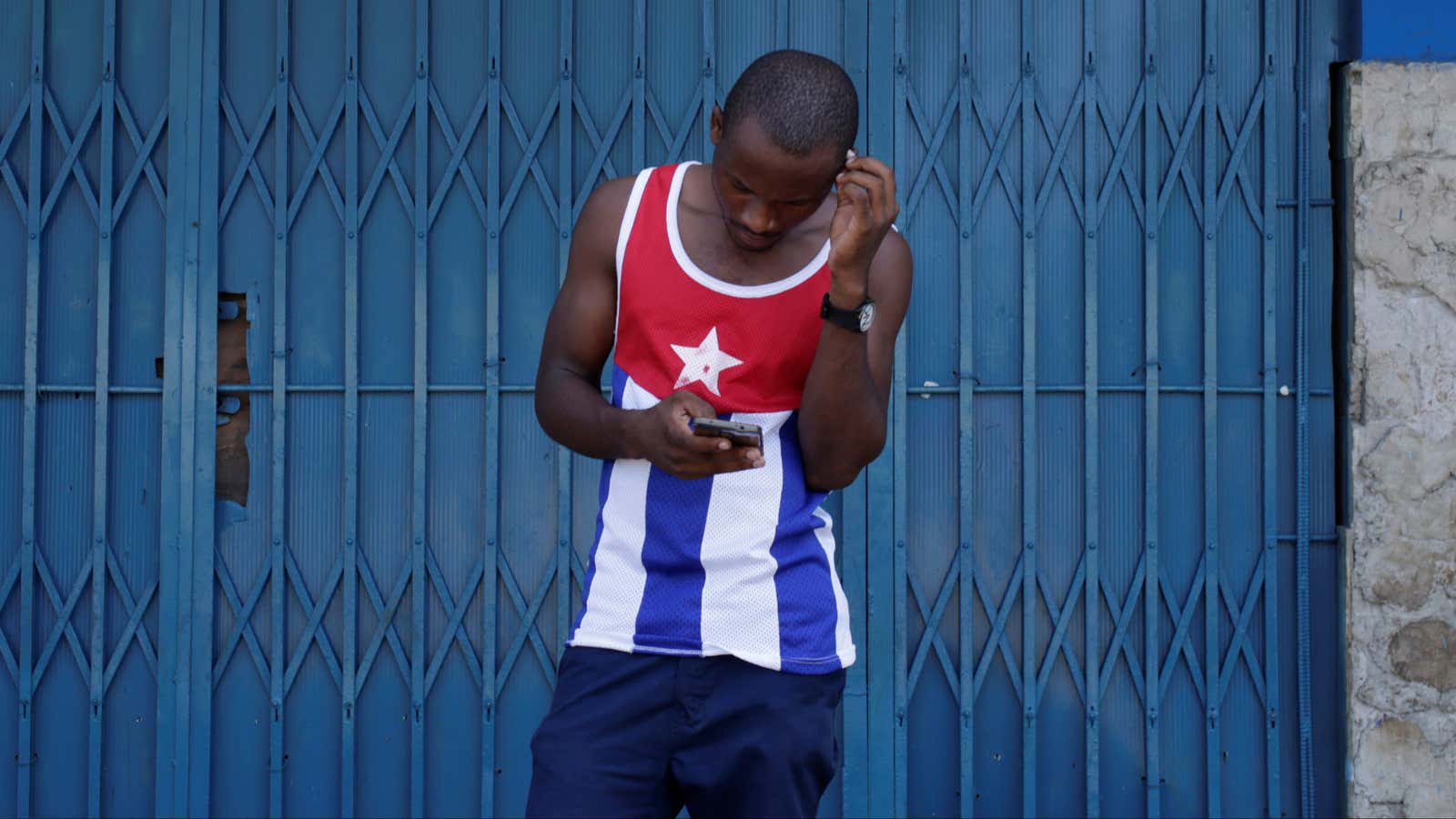Cuba has been relying on Chinese technology to build up its telecommunications network. Now it appears to have also adopted the Asian giant’s censorship techniques, according to dissident reports.
An analysis by 14 y Medio, a Cuban digital media outlet started by well-known blogger Yoani Sánchez, found that the country’s state-owned telecom company is apparently blocking texts containing words such as “democracy” and “human rights.”
The news site had an array of users throughout the island—from government opponents and activists to non-politically active folks—send texts with terms that could be potentially problematic to the island’s regime. Among them (link in Spanish): “repression,” “dictatorship,” “hunger strike,” “coexistence” (convivencia in Spanish, which is also the name of an independent magazine,) and the names of several dissidents, including Sánchez.
In all instances, texts with the offending words “were lost along the way,” 14 y Medio reported (Spanish) on Sept. 3. Reuters carried out a similar test—with similar results. Government sources were either not available or did not respond to requests for comment by the two news organizations.
The blocked texts highlight the uneven pace of change in Cuba. While the government is gradually letting go of its decades-old anti-US foreign policy, and its aversion for private enterprise, it still seems unable to stomach any challenge to its monopoly on power.
Cubans are already limited in their communications due to the high cost of cell phone service and spotty Internet access. But texts are a relatively cheap and practical way to communicate—if you avoid certain words. There are some three million cell phone users (Spanish) on the island.
14 y Medio’s analysis was prompted by complaints from users who noticed they were being charged for texts that were not delivered. Although Cuba’s cell phone provider Cubacel specifies in its contract that threatening public order and state security is a motive for service suspension, according to 14 y Medio, the customers they spoke with reported never receiving a warning that their messages would blocked if the content was deemed objectionable.
“How many misunderstandings between couples, domestic fights, and unfulfilled professional tasks have been due to the filtering of words that include last names like ‘Biscet'”—the name of a well-known government critic—”and terms like ‘plebiscite?'”said the 14 y Medio report, which was written by Sánchez and a colleague.
As frustrating as the discovery of the text monitoring is for many Cubans, they will likely find a way around it. That’s what they’ve been doing to throw off government minders for years, long before electronic media. For example, “aspirin” is used in communication of all sorts in lieu of ”police patrol car,” and “red fabric” means beef, which is highly-rationed and coveted.




